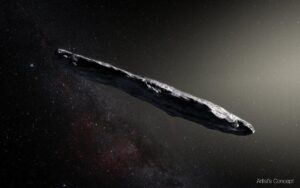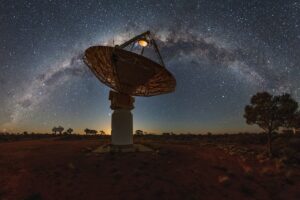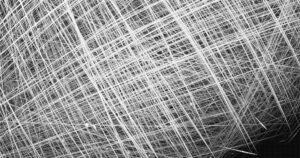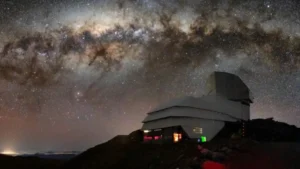Sometimes, scientific theories sound like the most absurd of Marvel’s comic books — and that’s not a criticism.
Take this one, for example: the super-powerful black holes formed by dying stars also create dark energy, a mysterious force that makes up 70 percent of the universe and drives its cosmic expansion.
Sound far-fetched? Perhaps that’s why this theory — published in two new studies about black holes and dark energy — was immediately questioned by physicists and astronomers.
With two papers published in The Astrophysical Journal and The Astrophysical Journal Letters, a group of researchers attempt to link the two mysterious phenomena.
Even now, neither of these cosmic forces are fully understood. In fact, scientists barely understand either one. Dark energy is a concept created to justify observations of an expanding universe. Why is the universe getting bigger if we have gravity?
Scientists believe dark energy holds the answer — though they’ve never proved what it is, exactly, or where it comes from.
Now, a group of researchers from nine countries think they’ve found the answer: black holes, using dark energy, are the engines of a growing universe.
Brand-new theory faces contention
That epic idea came from a University of Hawai’i-led team of 17 researchers, which also included several British physicists.
They arrived at the theory after comparing black hole masses in young galaxies with those in giant, dormant galaxies. In the younger galaxies, black holes grow by consuming stars and other cosmic material, like a hungry teenager gobbling up everything in the kitchen.
But the researchers found something strange. In dormant galaxies without much cosmic nourishment, black holes appeared seven to 20 times larger than anticipated. So scientists think they’re growing from some unseen (possibly dark) energy.
“The importance of this work is that it’s taken the theories about black holes with dark energy cores and linked them for the first time to tangible observations of the universe,” Chris Pearson, a co-author of the study, told The Guardian.
Many prominent scientists said the idea was promising — while also immediately questioning its veracity.
“There’s a number of counter-arguments and facts that need to be understood if this claim is going to live more than a few months,” Vitor Cardoso, a professor of physics at the Niels Bohr Institute in Copenhagen, said in The Guardian story.
He continued by calling the researchers “naive” and suggesting that a “mundane” explanation was more likely.
For us non-physicists watching from the sidelines, it’s not an argument we can join. Personally, I have a thoroughly unscientific reason to support the theory of universe-expanding black holes fed by dark energy.
It sounds — in the truest meaning of the word — awesome.






